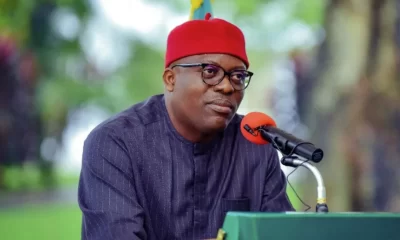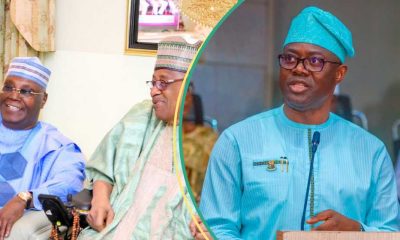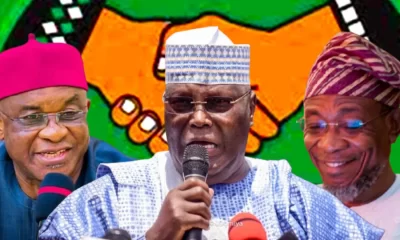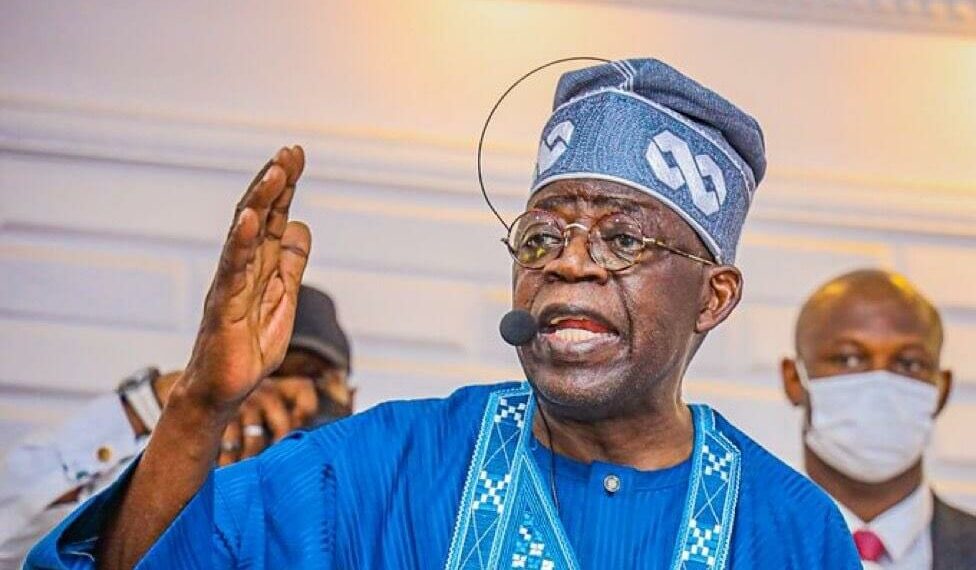Presidential candidate of the All Progressives Congress (APC), Bola Tinubu says his administration will optimize the country’s foreign exchange (FX) to strengthen the naira as well as reduce foreign debt to achieve a productive economy.
Tinubu said this in his manifesto tagged ‘Renewed Hope 2023’.
He said the exchange rate is the most evocative monetary issue of the day as it “stirs emotions and feelings of national pride or embarrassment, depending on the rate of the day and the trend it suggests”.
According to Tinubu, the FX rate influences the costs of imports, the competitiveness of exports, and net capital flows, among other things.
“It cannot be ignored nor left to the vagaries of an unrestrained market,” the presidential candidate said.
“Yet, we must be precise regarding economic cause and effect. The recent dip in our exchange rate is primarily due to global supply and production shortfalls caused by global factors well beyond the scope of our control. Our diminished levels of oil production and the modest capacity of our manufacturing sector to expand production both serve to compound the pressure on the naira.
READ ALSO: Northern Group throws support for Tinubu’s economic blueprint
“Further compounding our difficulty is the fact that we are tied to an ineffective regime of multiple, somewhat arbitrary, exchange rates. This situation gives rise to financial dislocation, currency speculation and arbitrage. These practices divert much-needed funds away from productive endeavours that could employ hundreds of thousands of people and create products that improve average living conditions.
“To ensure that exchange rate policy harmonises with our goals of optimal growth and job creation driven by industrial, agricultural and infrastructural expansion, we will work with the Central Bank and the financial sector to carefully review and better optimise the exchange rate regime. Our economic policies shall be guided by our desire for a stronger, more stable Naira founded upon a vibrant and productive real economy.”
On foreign debt, Tinubu said the country can protect its exchange rate, “guard against inflation and preserve foreign currency reserves” by limiting its exposure to large debt obligations denominated in foreign currency.
Nigeria’s debt profile has remained a hot topic in the public – one often seen as harmful to its economy.
As of March 2021, Nigeria’s total public debt hit N33.1 trillion ($87.24 billion) — an accumulation of borrowings from successive governments, of which most were borrowed since the return to democratic rule in 1999.
In the first quarter of 2022, the country’s public debt rose to N41.6 trillion from N39.56 trillion recorded at the end of December 2021.
The country’s debt stock continued to rise such that the cost of servicing debt eventually surpassed the federal government’s retained revenue by N310 billion in the first four months of 2022.
READ ALSO: Tinubu unfolds manifesto – Renewed Hope 2023, Action Plan for a Better Nigeria – on Friday
Tinubu believes that his administration, if he’s elected president, will efficiently manage the country’s appetite for foreign borrowings.
“Our administration will engage in extraordinary prudence in contracting debt in foreign currency. Our policy will be such that new foreign currency debt obligations will be linked to projects that generate cash flows from which the debt can be repaid,” he added.
“Where possible, we shall limit such foreign currency-denominated debts to essential expenditures that cannot be adequately addressed by either naira-denominated expenditures or debt obligations.”
Tinubu said one of the goals of his administration is to achieve stability in the supply of petroleum products by fully deregulating the downstream sector and ensuring that local refinery capacity will meet domestic consumption needs.
To achieve this, he said his government “shall phase out the fuel subsidy yet maintain the underlying social contract between government and the people”.
“We do this by dedicating the money that would have been used on the subsidy to fund targeted infrastructural, agricultural and social welfare programs ranging from road construction, to boreholes, public transportation subsidies, education and healthcare funding programs,” he said.
“In this way, the funds are more directly and better utilized to address urgent social and economic needs.
“Our planned approach will not only mitigate the price effects of deregulation but will also result in the significant expansion of public infrastructure and improvement of the public well-being.
“Subsidy removal and deregulation are, however, only part of the solution. To further increase our refining capacity, we shall focus on the rehabilitation of the nation’s refineries and shall consider, as a model, the joint venture partnership arrangements implemented by other leading oil producing states and global petrochemical firms.”

 Featured7 days ago
Featured7 days ago
 Latest1 week ago
Latest1 week ago
 Business7 days ago
Business7 days ago
 Latest1 week ago
Latest1 week ago
 News5 days ago
News5 days ago
 Football1 week ago
Football1 week ago
 Football1 week ago
Football1 week ago
 Latest7 days ago
Latest7 days ago

